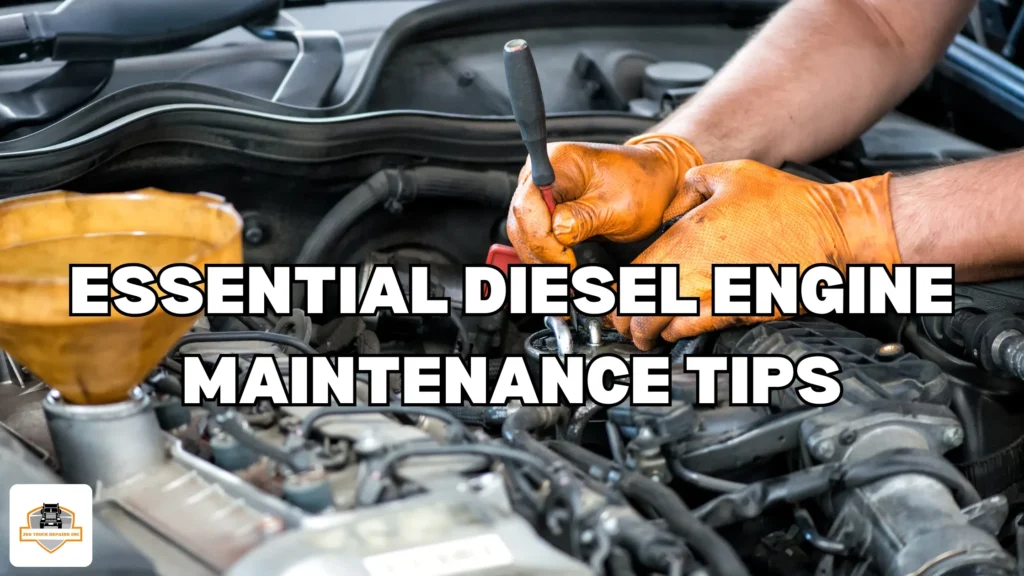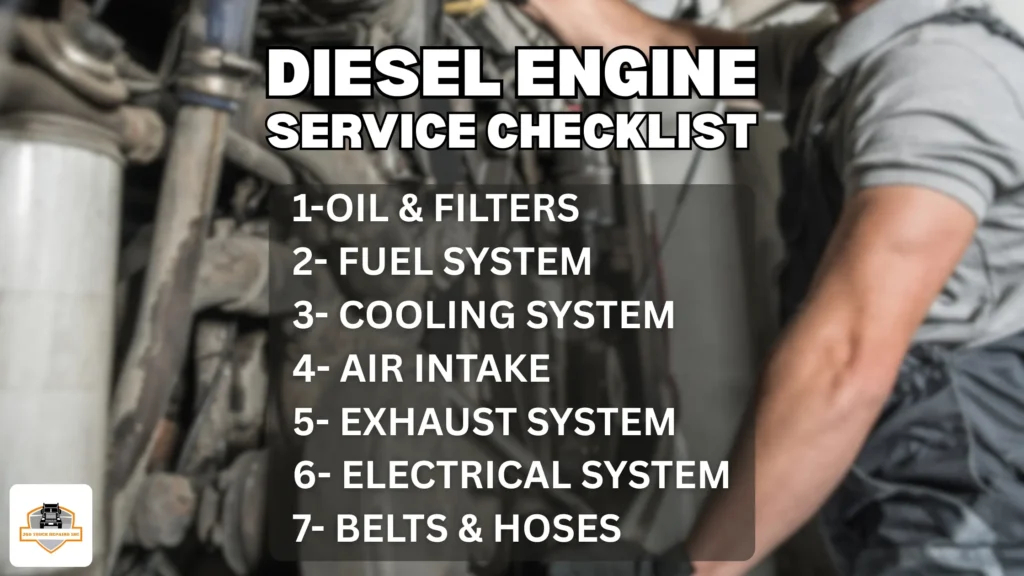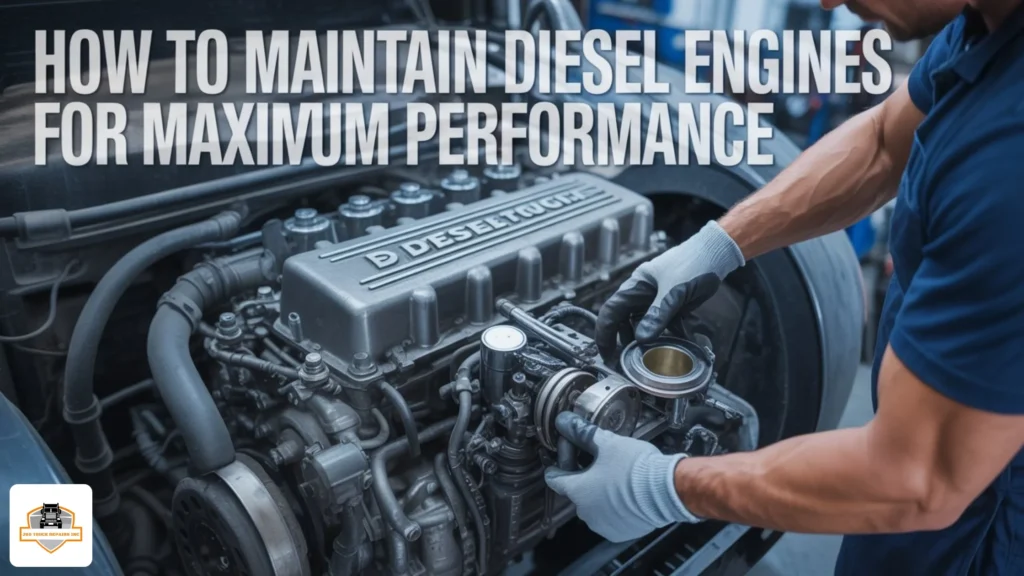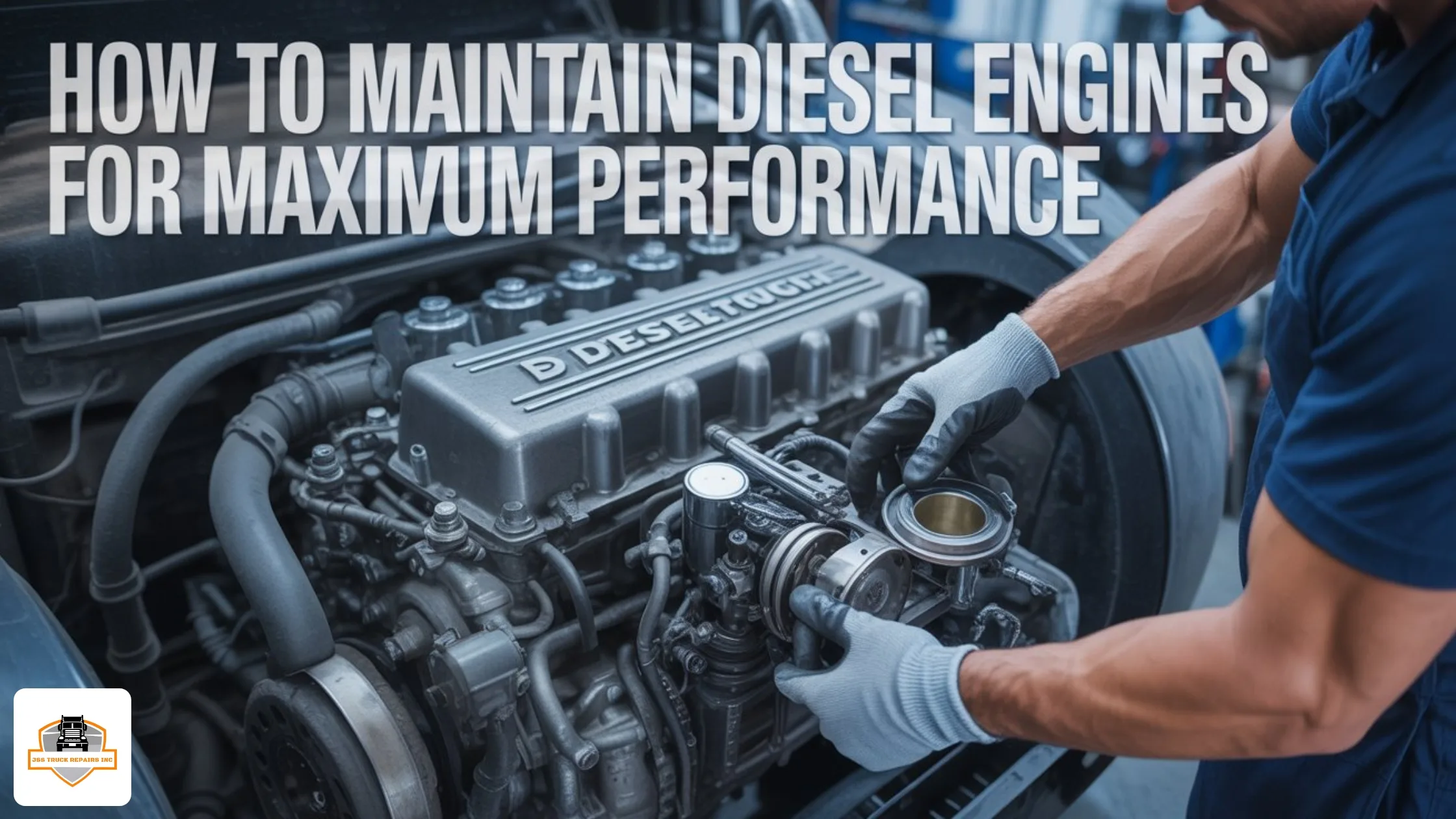Diesel engines power some of the hardest-working trucks on the road. For fleet owners, operators, and truck drivers, understanding how to maintain diesel engines is essential for reducing downtime, improving fuel efficiency, and ensuring long-lasting performance. At JSS Truck Repairs Inc, many truck owners rely on services like Mobile truck repair Etobicoke to keep their vehicles running smoothly—especially when breakdowns happen on the road.
This guide provides simple, practical, and professional diesel engine maintenance tips you can use daily. Every step is written to help you improve engine health, boost performance, and extend engine life.
Why Diesel Engine Maintenance Is Important
Diesel engines operate under high pressure and extreme loads. Without proper care, problems like overheating, fuel contamination, injector failure, and turbo damage can appear unexpectedly.
Regular maintenance helps:
- Cut repair costs
- Improve fuel economy
- Reduce breakdowns
- Increase safety
- Improve power and torque
- Extend engine lifespan
If you are unsure where to begin, the best practices for diesel engines shared in this guide will help you follow a systematic approach. You can also explore JSS’s services anytime through their official website.
Essential Diesel Engine Maintenance Tips

1. Perform Regular Oil Changes
Oil lubricates, cools, and protects your diesel engine. Because diesel engines produce more soot, the oil becomes contaminated faster.
How to Maintain Diesel Engines with Proper Oil Care
- Change oil every 5,000–10,000 km
- Always replace the oil filter during each oil change
- Use high-quality, manufacturer-recommended oil
Dirty oil increases internal friction and leads to fast wear.
2. Maintain a Clean and Healthy Fuel System
Fuel contamination is one of the most common causes of diesel engine problems.
Diesel Engine Care Guide for Fuel Systems
- Replace fuel filters regularly
- Drain water separators
- Use clean, high-quality diesel
- Clean injectors if you notice misfires or rough idling
A clean fuel system greatly improves combustion and overall engine performance.
3. Protect the Cooling System
Overheating is one of the biggest enemies of diesel engines.
Tips to Improve Diesel Engine Performance Through Cooling
- Maintain proper coolant levels
- Flush coolant every 1–2 years
- Inspect radiator and hoses
- Clean radiator fins if driving in dusty areas
A well-maintained cooling system prevents internal engine damage.
4. Ensure the Air Intake System Stays Clean
Diesel engines require a large amount of clean air to generate power.
Best Practices for Diesel Engines – Air Management
- Replace air filters frequently
- Inspect turbocharger pipes for leaks
- Clean the turbo inlet if dirt accumulates
Restricted airflow causes black smoke and fuel wastage.
5. Inspect the Exhaust System
A healthy exhaust system controls emissions and ensures smooth engine performance.
What to Check
- DPF (Diesel Particulate Filter) condition
- EGR valve performance
- Exhaust manifold leaks
- Blockages in the exhaust pipe
A clogged DPF can trigger warning lights and reduce engine power.
6. Maintain the Electrical and Sensor Systems
Modern diesel engines are heavily dependent on sensors and electrical controls.
Key Components to Monitor
- Battery health
- Alternator output
- Glow plugs
- ECU and wiring
Faulty sensors often cause sudden loss of power or warning lights.
7. Watch for Leaks and Warning Signs
Leaks, noises, and vibrations usually indicate early-stage engine issues.
Common Warning Signs
- Oil or coolant puddles
- Hissing sounds
- Hard starting
- Excessive smoke
- Rough idling
Never ignore early symptoms—quick diagnostics prevent big repairs. For professional help, you can always reach out through the JSS Truck Repairs Contact Page.
Diesel Engine Service Checklist

Oil & Filters
- Replace engine oil
- Replace oil filter
- Inspect oil pan and seals
Fuel System
- Replace fuel filters
- Clean injectors
- Drain water separators
- Inspect fuel lines
Cooling System
- Check coolant level
- Flush coolant
- Inspect radiator and pump
- Tighten hose clamps
Air Intake
- Replace air filter
- Inspect turbo
- Clean intake ducts
Exhaust System
- Inspect DPF
- Check EGR
- Look for leaks
Electrical System
- Test battery
- Inspect glow plugs
- Check wiring
Belts & Hoses
- Check belt tension
- Replace worn belts
- Check hoses for cracks
Engine Performance
- Scan error codes
- Monitor idle quality
- Check smoke color
How to Improve Diesel Engine Performance

You can boost engine performance through small but consistent habits.
1. Use Good Quality Diesel Fuel
Low-grade diesel leads to injector clogging and carbon buildup.
2. Keep the Air Intake Clean
More clean air = better combustion and more power.
3. Maintain the Turbocharger
A properly working turbo directly improves acceleration and torque.
4. Clean Injectors Regularly
Injector cleaning restores fuel spray accuracy.
5. Avoid Overloading
Excessive weight strains the engine and reduces lifespan.
6. Reduce Idling
Long idling increases soot and fuel wastage.
7. Follow a Service Schedule
Consistent service is the easiest way to maintain top-level performance.
Diesel Engine Longevity Tips
To keep your diesel engine reliable for many years, follow these practices:
- Warm up the engine before heavy driving
- Allow cooldown time after long trips
- Change oil and filters on schedule
- Fix small issues immediately
- Avoid aggressive driving
- Keep the engine bay clean
- Prevent overheating by checking coolant regularly
- Run the engine periodically if parked for long
- Use the vehicle within recommended load limits
Summary of Best Practices for Diesel Engines
- Use clean fuel
- Replace oil and filters on time
- Maintain air and cooling systems
- Keep the turbo and injectors clean
- Inspect belts, hoses, and wiring
- Watch for leaks and unusual noises
- Follow a structured service checklist
- Avoid overloading and excessive idling
Each of these steps helps improve diesel engine performance and reduce breakdowns.
Conclusion
Understanding how to maintain diesel engines is essential for keeping your truck reliable on the road. With regular service, clean fuel, proper inspections, and timely repairs, you can maximize engine performance and prevent expensive failures. Whether you manage a fleet or operate a single truck, following these diesel engine maintenance tips will keep your vehicle running longer and stronger.
If you ever need professional on-site help, services like Mobile truck repair Etobicoke ensure fast and reliable repairs wherever you are.
FAQs
1. How often should diesel engines be serviced?
Every 10,000 km or 6 months, depending on vehicle usage.
2. Why does my diesel engine produce black smoke?
Usually due to poor air intake, dirty injectors, or low-quality fuel.
3. How can I increase diesel engine fuel efficiency?
Keep filters clean, avoid overloading, maintain tire pressure, and use good fuel.
4. What causes hard starting in diesel engines?
Faulty glow plugs, poor fuel pressure, weak batteries, or injector issues.
5. What is the most important part of diesel engine maintenance?
Regular oil and filter changes—they prevent most internal engine damage.








